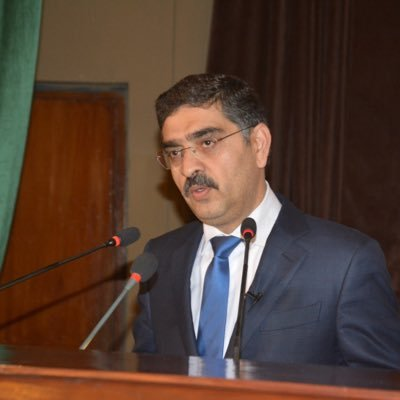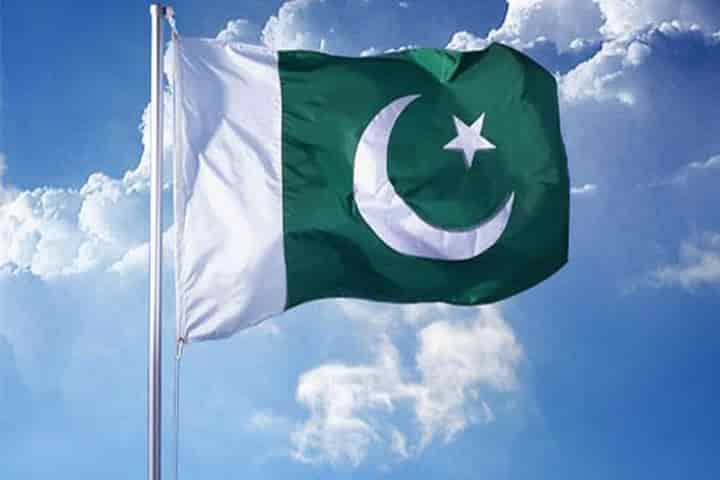The pervasive deprivation of essential services in Pakistan-occupied Jammu and Kashmir (PoJK) and Gilgit-Baltistan (GB) is affecting the general public. The discontent and disenchantment among the youth in PoJK and GB have resulted in a succession of protests and demonstrations in recent times. The demonstrators are advocating for improved educational infrastructure, enhanced access to quality higher education, and the establishment of fresh employment prospects in the area… writes Dr Sakariya Kareem
The socio-political and economic factors affecting the people of Pakistan-occupied Jammu and Kashmir (PoJK) and Gilgit-Baltistan in the context of its occupied status and Pakistan’s poor governance structure have been underestimated by the international community. The area under illegal occupation of Pakistan comprises two administrative regions – Pakistan Occupied Gilgit Baltistan(PoGB) and Pakistan Occupied Jammu Kashmir(PoJK).
Since 1947 this area has been ruled by Islamabad even though it is not constitutionally integrated with Pakistan and its people do not have representation in the National Legislature. This constitutional limbo means that PoJK and Gilgit-Baltistan have an undefined status and suffer from political ambiguity, and this colours and shapes the views of its people on a range of issues that affect their lives. Sustained denial of constitutional and political rights under the pretext of the Kashmir conflict by Pakistan has led to failure in delivering basic services to the public. The Pak government is not transparent and that it only serves the self-interest of certain political and ethnic groups.
The people residing in these areas have experienced the brunt of Pakistan’s governance and its economic woes. Pakistan’s skewed wealth distribution has resulted in a stark disparity between the ultrarich and the impoverished, leaving only a fraction in the so-called middle class. For many Pakistanis, daily life is a struggle to secure necessities.
Furthermore, PoJK has been a hotbed of militancy and a breeding ground for terrorist organisations. Pakistan has consistently used POJK as a base to support terrorism activities in J&K. The presence of terror infrastructure and training camps in the region has been a cause for concern for India and has led to several conflicts in the region.

Even though PoJK has a President, Prime minister, and a council, the governing structure is powerless and dependent on the Pakistani establishment for the smallest issue at hand. Very often PoJK is described as a constitutional enigma. Popular resistance movements and communal-based sabotage in both PoJK and GB are nothing new to the region. Despite using strong arms tactics, law enforcement agencies haven’t been able to prevent the hapless people of PoJK & GB from protesting against the non-availability of essential commodities.
The frustration and disillusionment among the youth in PoJK and GB have led to a series of protests and demonstrations in recent years. The protesters demand better educational facilities, access to quality higher education, and the creation of new job opportunities in the region. The issues fuelling these protests affect not only the general populace but also government employees, including law enforcement agencies and police below grade 17 or those lacking special privileges. Every time people come out to protest against additional taxes on electricity bills or cuts in wheat subsidies and the movement begins to gain momentum, the Pakistan government lets loose its religious proxies to infuse divisions among the ranks of the protestors using religious fault lines. Tehreek-e-Tahafuz-e-Khatam-e-Nabuwat (Movement for the protection of the finality of the Prophet) is activated in PoJK against the so-called ‘imminent’ threat of an Ahmadiyya conspiracy to destabilise Pakistan. Likewise, in GB, the Sunni-Shia fault line is exploited to break the momentum of the resistance. However, in PoJK, it doesn’t seem to work and the boycott electricity campaign continues unabated. Overall the growth of sectarian tensions and violence in PoJK and GB is troubling.
The Karachi Agreement, which governs the rule of Pakistan over Gilgit-Baltistan, was signed between the President of Pakistan Occupied Kashmir, the Muslim Conference and a minister without portfolio from Pakistan, Mushtaq Ahmed Gurmani. Even though there was no formal merger between PoJK and Gilgit-Baltistan, the fate of the latter was decided by Prime Minister PoJK and Pakistan with no local representative participating in the matter.
The budget of PoJK presented by the government of so-called Azad Kashmir lacks any incentive for the young people of the land to act pragmatically and not choose to put their precious lives in harm’s way.
A budget worth a financial volume of Rs 2.32 trillion fails to talk about any development fund allocated for our youth to become worthy of the demands of the job market. It falls short of addressing the question of cost of living and in response to a 48% inflation rate only manages to increase pensions by 17.5% and salaries of government employees by 35% against a demand of 100% increase in both.
At least 700,000 young people in PoJK are reportedly unemployed. This is nearly half of the population that still resides in the occupied territory. Another 2 million live across the world as economic or political refugees.
Lack of job opportunities and facilities to be able to learn skills necessary for employment in today’s day and age are the main reasons behind the boat wreck in Greece on June 14, 2023, that has claimed the lives of several dozens of youth from PoJK. They dared to dream to travel to Italy and wider Europe in the hope of discovering a better world full of opportunities and hope.
Economists say that the PoJK is facing the worst inflation and unemployment crisis in decades. PoJK produces Rs 1.59 trillion worth of electricity each year. Pakistan pays us Rs 0.06 per unit and sells us back our electricity at an extortionate rate of Rs 20 to Rs 50 per unit while it adds a 17% tax for electricity used for commercial purposes. In the recent budget, Rs 44 billion has been allocated for ‘development’. Out of Rs 44 billion Rs 40 billion are set aside for paying salaries, electricity bills, fuel for the vehicles used by the government and other non-developmental expenses. All of this has led PoJK to run up a debt of at least Rs 14 billion. The subsidies on wheat along with 52 other items have been curtailed.
Local bodies elections were held in 2023 after a gap of 30 years. The reason for this delay or postponement is simple. The members of the puppet legislative assembly of PoJK did not want the constituency development funds to be handed over to local councillors.
According to an op-ed in Pakistani newspaper, The News, authored by scholar Danish Khan, the crippled infrastructure of PoJK and its remoteness has given a cover for Pakistan to disrupt the self-reliant agrarian economy of PoJK.
In contrast, India has emerged as the world’s fifth-largest economy, showing remarkable progress and leading the way globally. The economic disparities between India and Pakistan play a significant role in the aspirations of the people of POJK. While India’s economy has been on an upward trajectory, Pakistan has faced numerous economic challenges. Pakistan’s economy has been marred by corruption, mismanagement, and overdependence on foreign aid.
Meanwhile, since the abrogation of Article 370 and the introduction of a new Industrial Development Scheme by the government of India, the Union territory of Jammu & Kashmir has received investment proposals worth Rs 81,122 crore. With an increasing footfall of domestic and foreign visitors, tourism in J&K is scaling new heights, making the Union Territory (UT) one of the top destinations in the country. In fact, from FY21 to FY23 the services sector grew from 61.6% to 63.6%. On employment, J&K has managed to maintain a higher labour force participation rate (LFPR) than the national average. Its LFPR grew by nearly six percentage points between 2019-’20 and 2021-’22.
There are no longer any takers for strike calls imposed by separatists and militants in Kashmir, as the common man has started to reap the dividends of peace. Before the abrogation of Article 370, not only businesses, but the education sector in Kashmir suffered immensely due to frequent strike calls, stone-pelting incidents and violence in Kashmir.
The people of POJK have witnessed India’s growth and success on the international stage. Recent developments in Gilgit and Baltistan, which are part of POJK, reflect their desire to be a part of India. Today, almost every single protest taking place in Pakistan-occupied Jammu and Kashmir and in Gilgit Baltistan echoes the call for reunification of PoJK and PoGB with India. Slogans of “Hindustan Zindabad” and the display of the tricolour have become daily occurrences.
India has repeatedly raised concerns about Pakistan’s support for terrorism, and resolving the POJK issue would be a significant step toward addressing these concerns. Crucially, the elimination of terror networks and the sanitization of the area are critical for regional stability and security.

Leave a Reply